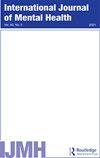低资源环境中精神疾病康复和恢复的CREATE战略:肯尼亚概念验证研究的发展进程和评价
IF 1.4
Q3 PSYCHOLOGY, CLINICAL
引用次数: 3
摘要
摘要低收入和中等收入国家(LMIC)存在与严重精神疾病(SMI)相关的巨大负担和治疗差距。为了解决这些问题,有必要建立一系列符合能力方法的社区康复模式,包括让SMI患者有机会在社区内迅速从事有意义的工作。本文概述了肯尼亚通过创业实现社区恢复(CREATE)战略的发展过程和概念验证评估。CREATE战略将工作整合社会企业(WISE)与一个专注、低成本、以康复为导向的心理社会康复(PSR)工具包结合在同行参与/支持模式中,作为解决边缘化问题和促进SMI患者健康、福祉和参与的一种手段。定性研究方法用于了解肯尼亚实施CREATE的一系列利益相关者的经验。三个总体主题阐述了不同利益相关者的经历:(1)与其他企业一样体验企业,但有所不同;(2) 通过有意义的工作扩大能力、机会和网络;(3)通过教育促进知识和赋权。在每一个主题中,都有证据表明边缘化的核心因素有所减弱。CREATE战略在肯尼亚资源匮乏的环境中展示了可接受性和各种潜在的积极影响。CREATE战略在肯尼亚其他低资源环境和其他LMIC中的应用值得进一步探索。本文章由计算机程序翻译,如有差异,请以英文原文为准。
The CREATE strategy of rehabilitation and recovery for mental illness in low resource settings: Development processes and evaluation from a proof of concept study in Kenya
Abstract A significant burden and treatment gap associated with serious mental illness (SMI) exists in low- and middle-income countries (LMIC). In order to address these issues, a range of community-based rehabilitation models in alignment with the Capabilities Approach is necessary, including opportunities for people with SMI to be rapidly engaged in meaningful work within their communities. This paper outlines the development processes and evaluation of the proof of concept for the Community REcovery Achieved Through Entrepreneurship (CREATE) strategy in Kenya. The CREATE strategy pairs Work Integration Social Enterprises (WISE) with a focused, low-cost, recovery-oriented Psychosocial Rehabilitation (PSR) toolkit within a peer involvement/support model as a means of addressing marginalization and fostering health, wellbeing, and participation of people living with SMI. Qualitative research methods were used to understand the experiences of a range of stakeholders involved in CREATE implementation in Kenya. Three overarching themes explicated the experiences of the various stakeholders involved: (1) experiencing a business like other businesses – yet different; (2) expanding capacities, opportunities, and networks through meaningful work; and (3) promoting knowledge and empowerment through education. Within each theme, there was evidence of the attenuation of central elements of marginalization. The CREATE strategy demonstrated acceptability and a variety of potential positive impacts in a low resource setting in Kenya. Application of the CREATE strategy to other low resource settings within Kenya and other LMIC merits further exploration.
求助全文
通过发布文献求助,成功后即可免费获取论文全文。
去求助
来源期刊

INTERNATIONAL JOURNAL OF MENTAL HEALTH
PSYCHOLOGY, CLINICAL-
CiteScore
3.80
自引率
20.00%
发文量
32
期刊介绍:
The official journal of the World Association for Psychosocial Rehabilitation, the International Journal of Mental Health features in-depth articles on research, clinical practice, and the organization and delivery of mental health services around the world. Covering both developed and developing countries, it provides vital information on important new ideas and trends in community mental health, social psychiatry, psychiatric epidemiology, prevention, treatment, and psychosocial rehabilitation.
 求助内容:
求助内容: 应助结果提醒方式:
应助结果提醒方式:


